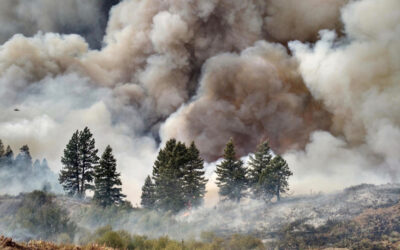New research from the Healthy Nevada Project® found that participants with specific genetic traits and who experience childhood traumas are more likely to suffer from adult obesity.
Wildfire Smoke Exposure Linked to Increased Risk of Contracting COVID-19
Wildfire smoke may greatly increase susceptibility to SARS-CoV-2, the virus that causes COVID-19, according to new research from the Center for Genomic Medicine at the Desert Research Institute (DRI), Washoe County Health District (WCHD), and Renown Health (Renown) in Reno, Nev.

